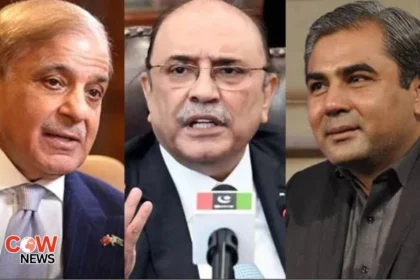Introduction
The National Accountability Bureau (NAB) of Pakistan has recently garnered attention for its significant recovery of Rs. 168.5 billion linked to the controversial Bus Rapid Transit (BRT) project in Peshawar. This recovery marks a pivotal moment in Pakistan’s ongoing battle against corruption, showcasing the agency’s efforts to address allegations of financial mismanagement and irregularities in public contracts. The investigation, which began in 2018, has not only exposed serious shortcomings in project execution but has also led to critical reforms aimed at enhancing accountability and transparency in public sector projects. This article explores the various aspects of the BRT investigation, its findings, implications for future governance, and the broader context of corruption in Pakistan.
Background of the BRT Project
Overview of the BRT Initiative
The BRT project in Peshawar was initiated to provide an efficient public transportation system, aiming to ease traffic congestion and improve urban mobility. The project, with a budget of approximately Rs. 66 billion, was designed to serve the city’s growing population and was touted as a transformative development. However, from the outset, it faced numerous challenges, including construction delays, cost overruns, and allegations of corrupt practices surrounding contract allocations.
The Need for Investigation
Amidst rising public discontent over delays and increasing project costs, NAB launched an investigation in 2018. The inquiry was prompted by mounting evidence of mismanagement and irregularities in the awarding of contracts. Reports indicated that several companies had been favored in the bidding process, raising suspicions of collusion and corruption. As public frustration grew, the need for a thorough examination of the project became imperative.
Key Findings from the Investigation
Illegal Contract Allocations
One of the primary issues uncovered by the NAB investigation was the improper awarding of contracts. Investigators found that six major contracts were awarded to specific companies that failed to meet their contractual obligations. This preferential treatment not only compromised the quality of the work but also raised serious ethical concerns about the decision-making processes involved.
Financial Mismanagement
The investigation revealed extensive financial mismanagement throughout the project. NAB uncovered instances where contractors submitted fake guarantees, misrepresented their capabilities, and failed to provide necessary documentation. These fraudulent activities contributed to significant delays and increased costs, further exacerbating the project’s challenges.
Review of Bank Accounts
A meticulous review of over 400 bank accounts associated with the BRT project yielded alarming results. Investigators found irregular transactions and discrepancies that suggested the misappropriation of funds. This financial trail pointed to a broader pattern of corruption, highlighting the urgent need for greater oversight in public spending.
Damages Claimed by the Peshawar Development Authority (PDA)
The Peshawar Development Authority (PDA), which was responsible for overseeing the project, claimed damages amounting to Rs. 86 billion due to delays and failures in contract execution. These claims reflected the severe financial implications of the mismanagement and highlighted the need for accountability among contractors and project managers.
NAB’s Actions and Outcomes
Recovery of Funds
NAB’s rigorous efforts led to the recovery of Rs. 108.5 billion through various measures. This included the dismissal of contractors’ claims totaling Rs. 31.5 billion in the International Court of Arbitration, which was a significant victory for the bureau. By thwarting these claims, NAB not only protected public funds but also demonstrated its commitment to holding accountable those responsible for the project’s failures.
Completion of the Project within Budget
Despite the challenges, NAB’s oversight played a crucial role in ensuring that the BRT project was completed within the original budget framework. An additional Rs. 9 billion was saved as a result of their intervention, underscoring the agency’s effectiveness in financial management during the completion phase of the project. This success was critical in mitigating the overall financial impact on taxpayers.
Settlement with Contractors
Contractors initially claimed Rs. 5 billion in increased costs due to the project delays. However, through NAB’s mediation efforts, a settlement was reached that capped payments at Rs. 2.6 billion. This resolution not only protected public resources but also illustrated NAB’s ability to negotiate effectively in complex contractual disputes.
Closure of Related Cases
The findings of NAB led the Peshawar High Court to officially close all related cases concerning the BRT project. This closure marked a significant advancement in the bureau’s efforts to combat corruption and restore public trust in government projects. By resolving these cases, NAB demonstrated its dedication to upholding the rule of law and ensuring accountability.
Implications of the Investigation
Strengthening Accountability Mechanisms
The BRT investigation underscores the urgent need for stronger accountability mechanisms in public sector projects. The issues uncovered—ranging from contract misallocation to financial misconduct—point to systemic weaknesses that enable corruption to flourish. Moving forward, it is essential to implement reforms that promote transparency, establish clear accountability standards, and ensure rigorous oversight in public procurement processes.
Impact on Future Projects
The outcome of the NAB investigation is poised to influence future infrastructure projects in Pakistan significantly. With increased scrutiny expected, contractors and government officials will need to adhere strictly to ethical standards and regulatory requirements to avoid similar repercussions. This shift could lead to more competitive bidding processes and a renewed emphasis on accountability and quality assurance in public works.
Restoring Public Confidence
The successful recovery of funds and the closure of related cases may help restore public confidence in governmental institutions. As citizens witness tangible actions taken against corruption, their trust in the efficacy of state institutions can be revitalized. This restoration of trust is crucial for the effective governance and functioning of public services, especially in a context where public disillusionment is prevalent.
Broader Context of Corruption in Pakistan
Historical Challenges
Corruption has long been a significant challenge in Pakistan, undermining development efforts and eroding public trust in government institutions. The BRT investigation highlights just one example of how corruption can infiltrate critical infrastructure projects. Various governments have grappled with accusations of financial mismanagement, and the legacy of such issues continues to impact public perception of governance.
Public Sector Reforms
In light of ongoing corruption issues, there is a pressing need for comprehensive public sector reforms. Strengthening the legal framework, enhancing the capabilities of oversight institutions like NAB, and fostering a culture of transparency are essential steps toward combating corruption. Moreover, empowering civil society organizations to play a watchdog role can bolster accountability efforts and encourage citizen participation in governance.
The Role of Civil Society
Civil society organizations play a critical role in advocating for transparency, accountability, and good governance in Pakistan. Their involvement in monitoring public projects and holding government officials accountable is essential for fostering a vibrant democracy. The engagement of civil society can also provide valuable insights into the challenges faced by communities, ensuring that public projects genuinely serve the interests of citizens.
Future Prospects and Recommendations
Continuing the Fight Against Corruption
The findings from the BRT investigation must serve as a catalyst for ongoing efforts to combat corruption in Pakistan. Establishing a culture of accountability requires sustained commitment from both government officials and civil society. NAB must continue to pursue cases of corruption rigorously and work towards enhancing its investigative capabilities.
Promoting Transparency in Governance
To foster a more transparent governance structure, the government should implement reforms that mandate the disclosure of financial records, contract awards, and project evaluations. By increasing public access to information, citizens can hold officials accountable and ensure that resources are allocated responsibly.
Engaging the Youth
Engaging the youth in Pakistan is crucial for building a more inclusive political landscape. As the younger generation becomes increasingly involved in politics, fostering dialogue and participation will be essential. Programs that educate young people about their rights and the political process can empower them to engage meaningfully with their leaders and contribute to the democratic process.
Conclusion
The NAB’s recovery of Rs. 168.5 billion linked to the BRT Peshawar project is a significant achievement in the bureau’s ongoing efforts to combat corruption in Pakistan. The investigation unveiled extensive mismanagement, illegal contract allocations, and financial malpractice, leading to substantial financial recoveries and the closure of related legal cases.
As Pakistan continues to face challenges related to corruption, the findings from the BRT investigation highlight the critical importance of accountability, transparency, and good governance. Moving forward, the lessons learned from this case will be vital in shaping policies and practices that protect public resources and enhance the integrity of governmental operations.
The NAB’s actions serve as a reminder that robust mechanisms are necessary to ensure that public projects are executed ethically and efficiently. By addressing the systemic issues that enabled the BRT project’s mismanagement, Pakistan can work towards a future where public funds are safeguarded and used to benefit the citizenry effectively.
#NAB #BRTPeshawar #Corruption #Accountability #PublicFunds #Pakistan #Transparency #InfrastructureDevelopment #Governance







